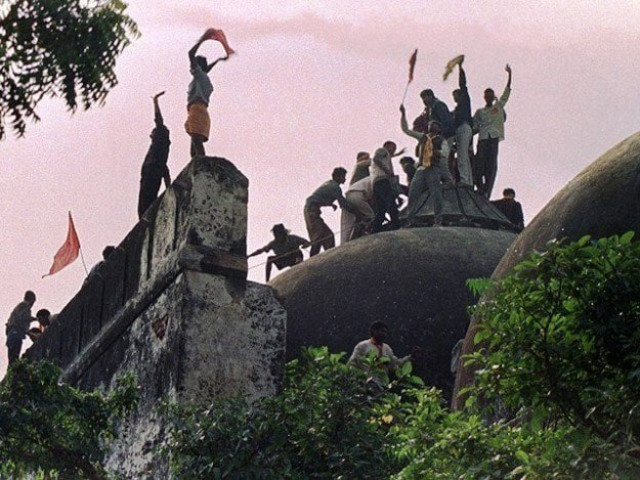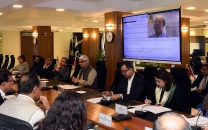28 years after razing of Babri Mosque, persecution of Muslims continues in Modi’s India
Since Modi came into power the lynching of Muslims on any pretext has become a norm

Its been 28 years since the day a frenzied mob of Hindu extremists razed to ground the historic Babri mosque in Ayodhya, fuelled by venomous instigation of the RSS-BJP ideology, and with each passing day the hatred against minorities in India continues to grow unchecked.
Violence against Muslims, the country’s largest minority, is nothing but routine in the world’s largest democracy, led by Prime Minister Narendra Modi who continues to aggressively pursue the Hindutva ideology, which sees India as a “Hindu nation.”
Though exact figures are unavailable, but a sifting through long list of riots in India, the death toll of Muslims killed by Hindus exceeds 10,000, a figure strongly contested by Muslims who believe actual numbers are far higher.
Since Modi came into power the lynching of Muslims on any pretext has become a norm. The recent New Delhi riots saw death of around 55 Muslims and losses running in millions.
But the Muslims in India are not the only target. In 1984 around 3,000 Sikhs were killed in New Delhi after the assassination of Prime Minister Indira Gandhi, and another 8,000 around the country.
The demolition of Babri mosque alone triggered some of the deadliest religious riots against the Muslims, with deaths exceeding 2,000. The total losses of property touched billions across India.
According to records the Babri Mosque was built when the first Mughal king, Babur was in power in 1528. However on December 23, 1949, it turned into a ‘disputed property’ as idols of the Hindu deity Rama were placed inside the mosque. Police locked the gates and no Muslim was allowed to offer prayers.
From 1950-61, four civilsuits were filed in the court by both the Hindus and the Muslims for seeking possession of the site. A Hindu temple committee in 1984 was formed by Hindu groups, to begin construction of a Hindu temple.
In 1990 the leader of Bharatiya Janata Party (BJP), LK Advani, led a nationwide campaign to build a Ram temple in the place of the mosque. The fury generated by RSS-BJP eventually led to the tearing down of the historic building on December 6, 1992 as Hindu religious extremists reduced the mosque to rubble.
Three judges of the Allahabad High Court ruled that the disputed site should be shared by Hindus and Muslims in September 2010. The court said two-thirds of the 2.77-acre (1.12-hectares) site belonged to Hindus while the rest to the Muslims.
However, in May 2011, the ruling was suspended by India’s Supreme Court as appeals were filed by both Hindu and Muslim groups.
The Indian supreme court increased the bench from three to five judges on January 25, 2019 and a mediation panel was set up, which failed to settle the issue on August 6, 2019.
After a day-to-day hearing on the dispute the Supreme Court on November 9, 2019 ruled that the land must be handed over to a trust to oversee the construction of a Hindu temple, while a separate piece of land in Ayodhya would be given over to Muslim groups.
On Sept 30, a special court in India acquitted all the 32 surviving accused in the Babri Mosque demolition case, which was immediately slammed by Pakistan as a “shameful” verdict.
“Pakistan strongly condemns today’s shameful acquittal of the criminals responsible for demolishing the centuries-old Babri Masjid in Ayodhya in 1992,” the foreign ministry said in a statement.



















COMMENTS
Comments are moderated and generally will be posted if they are on-topic and not abusive.
For more information, please see our Comments FAQ